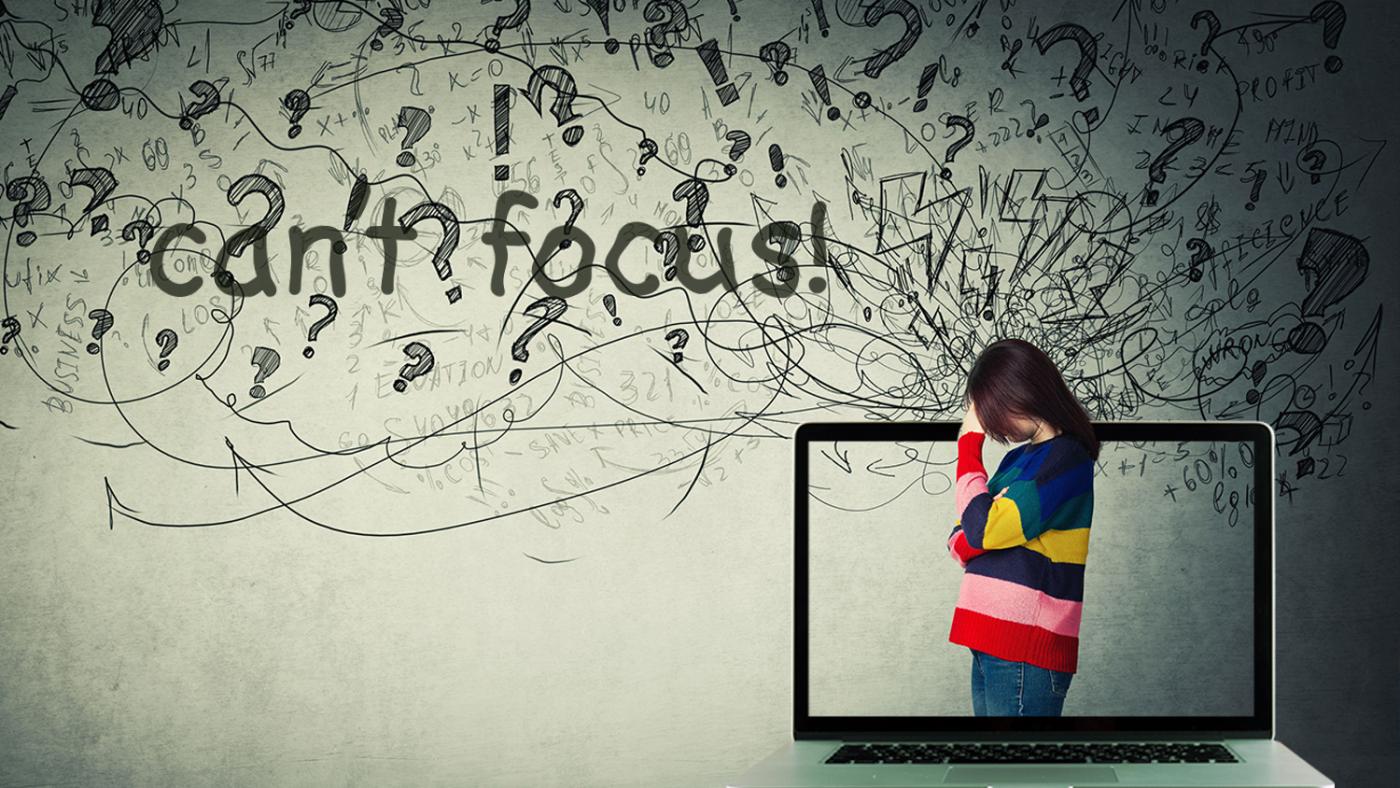Online education makes studying harder for students with disabilities

Olivia (21), who preferred not to reveal her real name on DUB, studies Liberal Arts & Sciences at University College Roosevelt in Middelburg. She misses the social aspects of attending lectures in person. “You don't see people before the lectures anymore. It’s also harder to have discussions about what we learn in class", she laments.
Although an initial study by Utrecht University shows that students' grades did not decrease because of the switch to online education last March, Olivia’s surely did. She has Attention Deficit Hyperactivity Disorder (ADHD), which makes it difficult for her to stay focused for long periods of time. Her limitations didn’t bother her before corona, but have become more significant now that she’s forced to be taught online. “Lecturers speak way too fast and it’s hard for me to say something about it in a digital environment”, she explains.
To improve her attention span during lectures, Olivia started working out five times a week in her student room in Middelburg. The efforts seem to be paying off.
Study coach
Asked what the university could do to help her improve her grades, Olivia recollects that the institution “didn’t know what to do” about her case at first. “It also took a while for anything to be arranged for me”. But provisions have been made since then. Unlike her classmates, she is allowed to turn off her camera during lectures. "I get annoyed when I see all those heads, I have the feeling that I am constantly being stared at. Now I can also walk around the room and stretch a little bit, which helps me to concentrate again afterwards."
She also gets a study coach at the university's expense. "She shows me the best way to study and what I can do if I can't concentrate for a moment", Olivia explains. Again, the efforts seem to be bearing fruit, as her grades are going up again. She thinks she’d do even better if she had a study room at the Middelburg campus, but the university cannot help her with that.
More applications for the buddy programme
Olivia is not the only student with a disability who’s having a hard time studying during the corona crisis. Richard Horenberg from Studying Without Limitations, UU’s platform to make the university more accessible for students with disabilities, has noticed an increase in the number of applications for their Buddy Programme, which pairs students with disabilities experiencing problems with more experienced students with similar disabilities.
According to Horenberg, this increase can be attributed to the switch to online education. "For students with ADHD, for example, it is often more difficult to focus on a screen. Dyslexics, on the other hand, benefit more from interactive education". Not everyone is having a bad experience, therefore.
In addition, Horenberg hopes that the pandemic will have positive consequences for this group of students. “People tend to focus on the negative side, but I hope that making the university more accessible to students with a disability will be the main takeaway from this crisis. The corona crisis has made it much easier for some students to study”, he ponders. Utrecht University could, for example, offer students with disabilities hybrid forms of education for students with certain disabilities.
More helplines
Studying Without Limitations is not the only place students can turn to. Those with learning difficulties – even without disabilities – can also go to the university’s Skills Lab, which offers guidance in areas such as academic writing, as well as referring students to training courses.
The Skills Lab also supports students who meet online on Microsoft Teams to share learning experiences and techniques or just go over their to-do list in the morning and their accomplishments at the end of the day. These groups come in handy for students who miss having some structure in their routine and connecting with others, according to Joy de Jong, policy officer and coordinator of the Skills Lab team.
Students can also request individual assistance from UU students trained by the Skills Lab. "Depending on the student’s issue, they can help them to organise themselves, or help them with time management”, de Jong explains.
There are some initiatives students can take themselves, says de Jong. "Chop that big task into smaller pieces and reward yourself when you have completed each piece. And connect with others every once in a while via Zoom or Teams, if necessary".